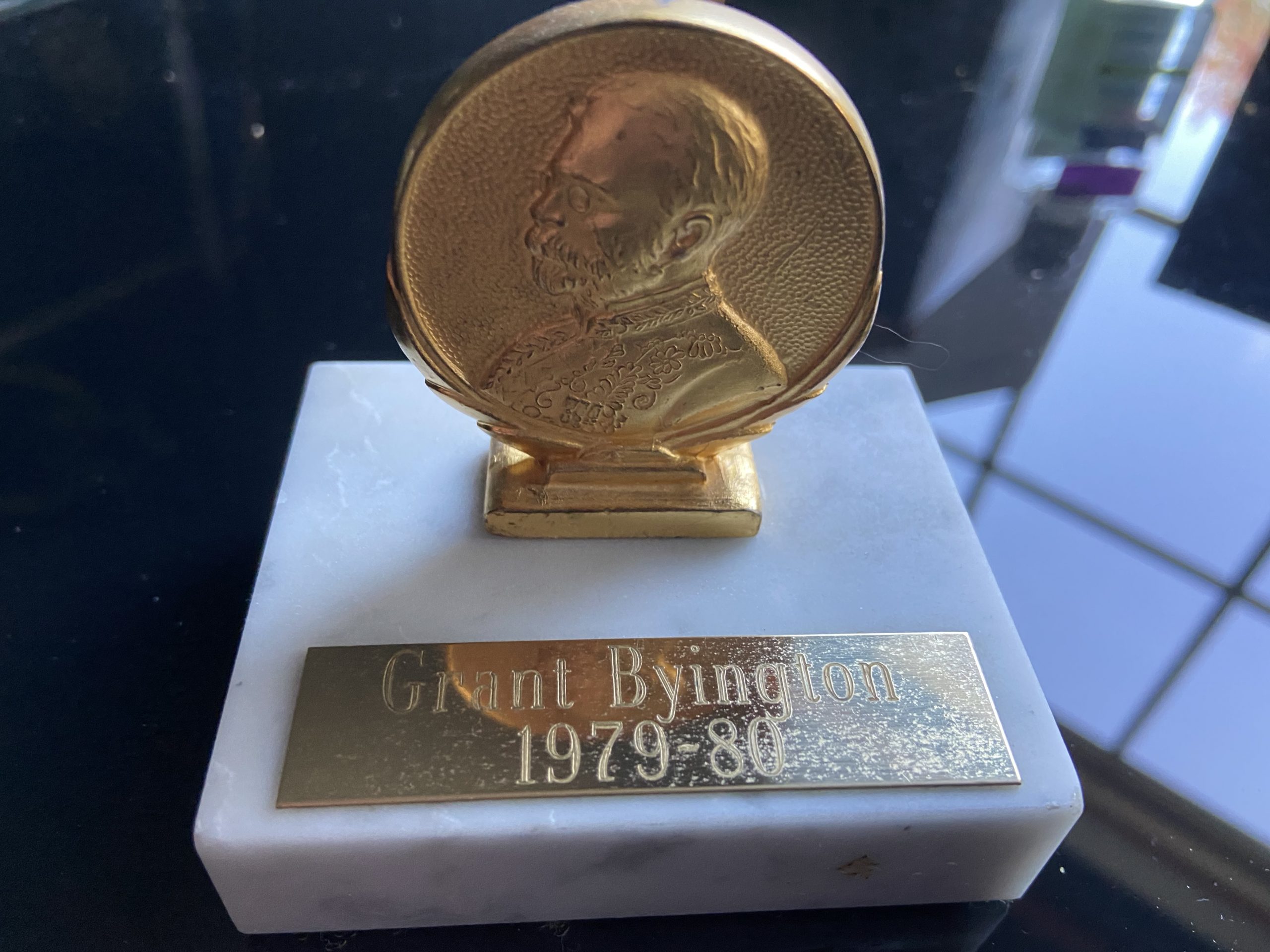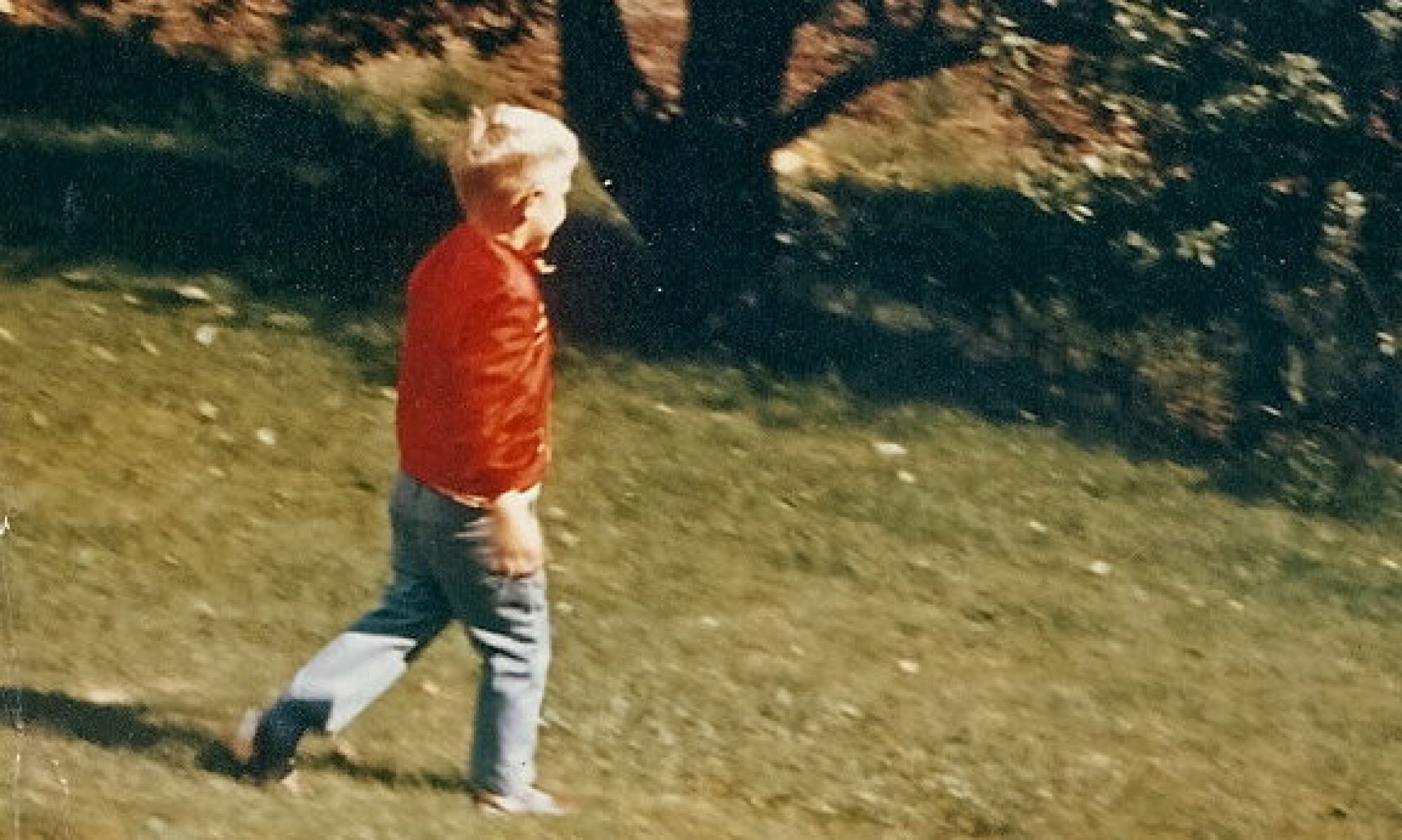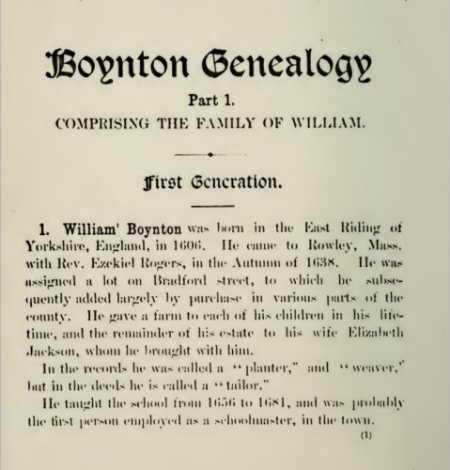It’s funny how things have a way of sneaking up on you. Today, without any provocation whatsoever, my John Phillip Sousa Band Award crashed to the ground in my office  — as I was staring at it. The souvenir paperweight had been bestowed upon me at the Spring Band Concert in 1980. This annual concert was only one of the many end-of-the-school-year events that the proud students of Anaconda High School (go Copperheads) would look forward to every year. And the John Phillips Sousa Band Award was given to a departing senior who had served in the band and was elected by their fellow bandmates to receive the honor. The awardee was given a souvenir paperweight, and their name was placed on a plaque with other Sousa Awardees. It was a great honor. (It most likely still is) and was the penultimate item on the program at the spring concert.
— as I was staring at it. The souvenir paperweight had been bestowed upon me at the Spring Band Concert in 1980. This annual concert was only one of the many end-of-the-school-year events that the proud students of Anaconda High School (go Copperheads) would look forward to every year. And the John Phillips Sousa Band Award was given to a departing senior who had served in the band and was elected by their fellow bandmates to receive the honor. The awardee was given a souvenir paperweight, and their name was placed on a plaque with other Sousa Awardees. It was a great honor. (It most likely still is) and was the penultimate item on the program at the spring concert.
Today, when I returned this memento to the shelf (perhaps the victim of some careless dusting?) I was surprised at the rush of all that came crashing down around me.
To say I loved band would be a gross understatement. Fact is, I lived for band. Any and all band. My entire afternoons of much of my high school years were consumed by band. Marching Band, Concert Band, Stage Band, Orchestra, you name it. I lived it.
Days like today, around this time of day, our marching band (there must have been upwards of 80 of us), would gather on a school bus and head to the football field to practice our routines. I was a squad leader. The duties of a squad leader were to keep four bandmates (in this case saxophones all) in a straight line. Squad leaders did this by periodically shouting “Guide Right!” as the percussion section would play a cadence.
Routines were choreographed in sections of eight. And strides were cleverly paced to cover five yards with every section. Squads would pivot and march and move backward. My junior year, our big halftime number was A Salute To Elvis, which, among other sections, involved a tricky maneuver of alternately tapping one foot over while playing Blue Suede Shoes. There was also a fancy slow-motion stride forward playing Love Me Tender. It was a vexing routine to say the least.
(You must know, aside from band being a band geek, I am a proud Elvis freakazoid … don’t get me started.)
The warm afternoon sun was a complete juxtaposition to the cold, cold Friday nights we would perform at the football games. But I remember rehearsing The Salute To Elvis went particularly well, save for the fact that we had run out of time and did not choreograph an exit.
Instead, our benevolent leader — the dear, departed Arlie Schultz, who had a wry sense of humor but rarely smiled, hence his nickname, Snarly Arlie — instructed us on our final dress rehearsal to “Let the crowd cheer for a bit. Let percussion start playing the cadence. Then everyone scream, and run off the field as fast as you can.”
We did just that. I remember my sister later asking me if we’d all been attacked by bees.
I wonder, though. If marching bands still practice on warm, sunny afternoons. And if A Salute To Elvis is still a popular routine. And which force of nature caused me to Guide Right on this hasty afternoon, some forty years later.

